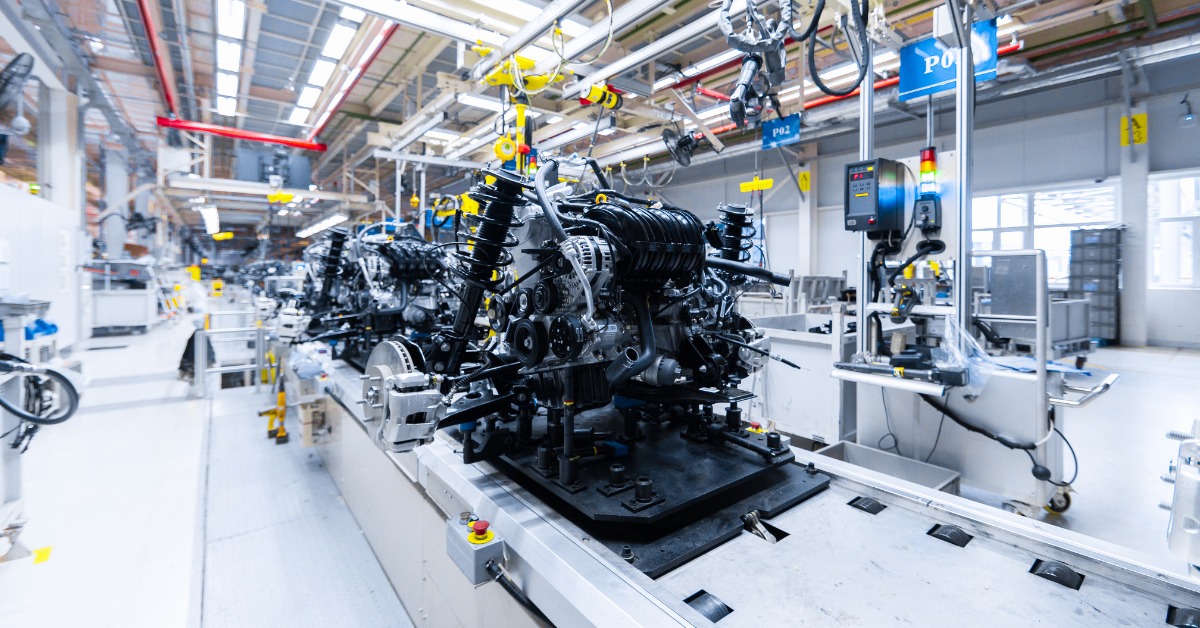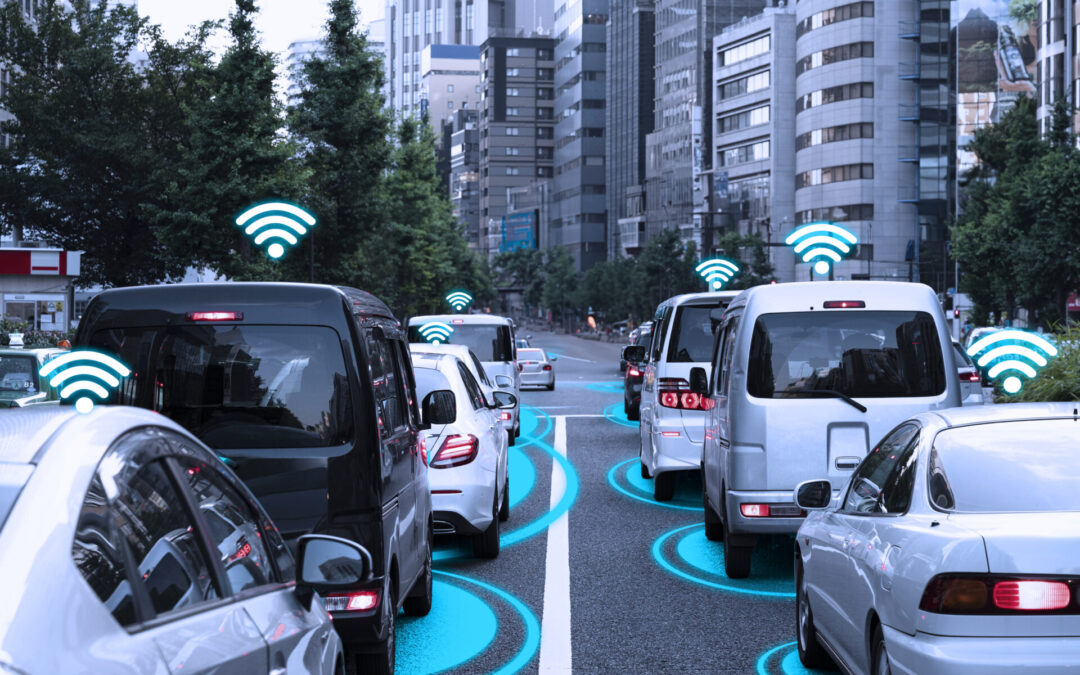With pretty much every industry out there undergoing a digital transformation, it’s no surprise that the same is happening to the automotive industry. Emerging technologies and constantly evolving customer expectations are pushing the automotive industry towards finding new and innovative ways of engaging with and providing products and services to their customers.
There are definitely a few buzzwords we keep hearing again and again like autonomous, electric, and connectivity — and with good reason. There’s been a clear shift in the type of vehicles consumers purchase, how they choose them, and what they expect the car owner experience to be like.
At the core of many of these trends is one common element: data. The future of the automotive industry is fueled by and heavily dependent on vehicle data. Many companies have realized the impact and potential use cases for providing better products, services, and experiences based on connected car data and as such, the marketplace for data-driven solutions has been booming and is expected to grow at a fast pace.
Below is an overview of the key trends in the automotive industry and their respective car data use cases.

Consumers are skeptical about the safety of autonomous vehicles
There is currently a vast array of companies investing in autonomous vehicles, and with more than 90% of car accidents happening due to human error, the potential of self-driving cars seems pretty obvious. Taking into account that several reports point to the fact that we would be safer in self-driving cars, one would assume that everyone would jump on the autonomous vehicles bandwagon.
In practice, however, things are slightly different. Even though the number of reported accidents caused by autonomous vehicles is still minimal, a few reports is all it takes for consumers to lose faith in driverless cars.
In fact, there’s been a steady increase in the number of people who would not feel safe in an autonomous vehicle. According to Deloitte’s 2019 Global Automotive Consumer Study, around 50% of consumers in the U.S., Japan, India, and Germany say that they do not consider autonomous vehicles safe. Exposure to media reports of accidents involving autonomous vehicles seems to be the main reason impacting consumers’ view of technology.
Nevertheless, investments in autonomous vehicles are not showing signs of slowing down and like everything else, we can probably expect that better technology, clear regulation, and improved safety will eventually lead to a change of mind on the consumers’ side. Car data can definitely help inform the autonomous vehicles of the future. Having access to car data provides insights into driving patterns, wiper and headlight use, GPS data, and plenty of other relevant data that helps with the development of autonomous vehicles.
Increasing interest in electric vehicles
If consumers are skeptical about autonomous vehicles, reports clearly show that they’re fully embracing electric vehicles and hybrids.
Taking into consideration the growing environmental concerns, the desire to live more sustainably, and governments incentivizing consumers to buy electric vehicles by lowering taxes, it’s no surprise that we see an increased interest in electric vehicles. PwC optimistically predicts that it’s possible that over 55% of all new car sales in Europe could be fully electrified by 2030.
A good use case for car data here would be to make personalized recommendations to drivers to switch to electric vehicles based on the insights on their usage and driving habits. This would encourage the sales of electric vehicles and enable consumers to make informed choices that are good for their wallet and the environment.
Electric is clearly the way to go. Demand is constantly increasing and infrastructure is being built to make it easier for consumers to switch to electric vehicles.
The way consumers buy cars has shifted
Like everything else, buying a car has also been impacted by the online revolution. Many consumers now spend time researching cars in advance and go to the dealership with a pretty clear idea of the type of car they want. This is actually great news, as according to Deloitte’s Global Automotive Consumer Study, around 30% buy a car the same day they step into a dealership.
Seeing as consumer behavior and expectations are changing, dealerships need to adapt to meet those expectations. For example, optimizing your website and investing in digital tools are two great ways of catching a potential customer’s attention in the research stage and making sure they will show up at your dealership.
Once a potential customer is in the dealership, use whatever information they have given you access to in the research phase to your advantage. Most people dislike the paperwork involved in buying a car, so investing in digital tools that can streamline these processes and elevate the shopping experience increases the chance of someone buying a car — and it makes for a smoother transition into a successful long-term service relationship with the customer.
Collecting car data can help build stronger relationships with customers too, as it provides access to insights that can allow a dealership to keep customers engaged and provide them with the kind of personalized experience that increases customer satisfaction and aftermarket revenue.
But with online shopping becoming more and more the default choice, will dealerships become obsolete in the future?
They won’t.
Even though it’s possible some consumers may choose to buy a vehicle online directly from the importer in the future, dealerships will still exist. That’s because it’s rather difficult to digitize certain elements of the showroom experience. According to Deloitte, more than 70% of consumers state that they still prefer to have in person interactions with personnel at the dealership. Nearly two-thirds would prefer to have negotiations in person, as they believe that would ensure them the best deal.
The future is connected
There’s been a boost in the connected car market, which is projected to reach USD 212.7 billion by 2027. Some of the reasons are government efforts to develop intelligent transportation systems and an increasing demand for connectivity features.
Connected car technology is rapidly gaining market share. Importers and dealerships are now offering digital solutions, and new companies are emerging on the market providing connected car technology like workshop management solutions, fleet management systems, and driver apps.
The demand for such services is on the rise, according to Deloitte’s report, Disruption in the automotive industry. Data collection and privacy are still a concern for many, however, consumers say that they would be willing to share their data if it provided them with connectivity services that would either save them time and money or would make driving safer. Some examples of such services are:
- Updates regarding traffic congestion
- Maintenance updates and vehicle health reporting
- Maintenance forecasts
- Access to nearby parking (i.e. availability, booking, and payment)
Another use case for connectivity that is becoming more and more popular is personalized insurance. Based on a driving behavior profile, car owners can be offered a personalized insurance policy. This is a great incentive for safer driving and cost-savings, as car owners can get a better price for their insurance policy if they drive more carefully.
Simply put, connectivity is here to stay.
Connected Cars offers similar connectivity based services, like vehicle technical status, overview of service data and repairs, service booking, and a chat module that allows the car owner to communicate with their workshop directly and get the help they need, when they need it. This is beneficial for the car owner who gets a digital connection to their car, as well as the workshops that can provide better service and proactive care to their customers.
Main takeaways
To sum it all up, there are quite a few exciting trends to keep an eye out for when it comes to the automotive industry. While electric vehicles have sparked a wide interest and sales continue to increase, the manufacturers of autonomous vehicles will have to work a bit harder to gain the consumers’ trust and make autonomous vehicles a safe and appealing choice.
Connectivity will fuel the future of the automotive industry — consumers are already showing an interest in connected car services and demand is only expected to increase.






